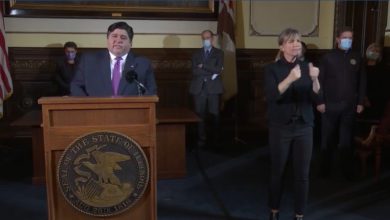JCAR to review Culturally Responsive Teaching and Leading Standards on Feb. 16

The Joint Committee on Administrative Rules (JCAR), a legislative body that has oversight authority over state regulatory agencies, will review “Culturally Responsive Teaching and Leading Standards” on Feb. 16.
The teaching standards aimed at creating culturally aware school leaders is a set of six overarching standards requiring teachers to be reflective as they build relationships with the students, families and communities they serve while also adapting their teaching methods to be inclusive of students with different cultures, backgrounds, languages, identities and sexual orientations.
The new standards would apply to teacher training programs at Illinois colleges and universities rather within the K-12 curricula. The Illinois State Board of Education would also “offer optional professional development on the standards to current educators,” but school districts would “maintain local control over what professional development they choose.”
During a virtual news conference on Monday, three Republican House members, Tom Demmer, Steve Reick and Adam Niemerg, spoke out against the proposed changes.
Critics of the proposal say that it is a form of political indoctrination that will push liberal ideology into the classroom.
“These new standards would require teachers to incorporate highly sensitive and politically-charged topics into the classroom curriculum elevating social activism over the mastery of basic skills,” said Rep. Steven Reick (R-Woodstock).
Reick was concerned that the teachers would have to access “how their biases and perceptions affect their teaching practice and how they access tools to mitigate their own behavior.”
He added that the new standards call on teachers to “understand and value the notion that multiple lived experiences exist, that there is not one ‘correct’ way of doing or understanding something, and that what is seen as ‘correct’ is most often based on our lived experiences.”
Reick said he did not disagree with the goal of increasing the number of minority teachers within the state.
Demmer (R-Dixon) and Niemerg (R-Dieterich) said that lawmakers need to focus on the state’s struggling education system.
“In Illinois today, just 37% of third-grade students perform at grade level for English language arts,” Demmer said. “And just 41% of third-grade students perform at grade level for mathematics.”
“Illinois teachers don’t have time to teach our students the tools they need to meet basic requirements in English and math,” Niemerg said. “Now, we’re going to make teachers prove that they are ‘woke’ or progressive and take their licenses away if they don’t prescribe to a particular political philosophy.”
State Superintendent of Education Dr. Carmen Ayala released a statement to support the new standards Monday.
More than 52 percent of Illinois students identify as students of color, and English Learners make up the fastest growing student population.
“Culturally responsive teaching and leading helped me improve the reading and math skills of every one of our student groups when I was a district superintendent and to achieve double digit growth among my students of color,” said State Superintendent of Education Dr. Carmen I. Ayala.
“Cultural responsiveness is inclusive of all of the experiences our educators, students, and families bring to the classroom. Our state produces a 30-point achievement gap between Black and white students and a 22-point achievement gap between Hispanic and white students. As we help students recover from learning loss due to the pandemic, giving our teachers opportunities to learn about effective, equitable, and research-based strategies like cultural responsiveness could not be more important. Every student deserves to feel welcomed, included, and accepted at school.
“Students are more engaged when they see their cultures represented in what they learn at school. As a veteran educator, I know teachers know this, and the proposed Culturally Responsive Teaching and Leading Standards will enhance the strategies and best practices our teachers can use.”
If approved, the standards would take effect in October 2025 in order to give state-approved educator preparation programs ample time to incorporate them.
JCAR is composed of 12 legislators who are appointed by the legislative leadership, with the membership apportioned equally between the two houses and the two political parties. JCAR was formed to inform the General Assembly of how laws are implemented through agency rulemaking and to facilitate public understanding of rules and regulations.
The body can find that a proposed law is free to adopt, make a “recommendation” on the language, issue an “objection” if it is inconsistent with state law or file a “prohibition” if the rulemaking constitutes a threat to the public interest, safety or welfare. An objection requires a vote of 8 of the 12 members.




